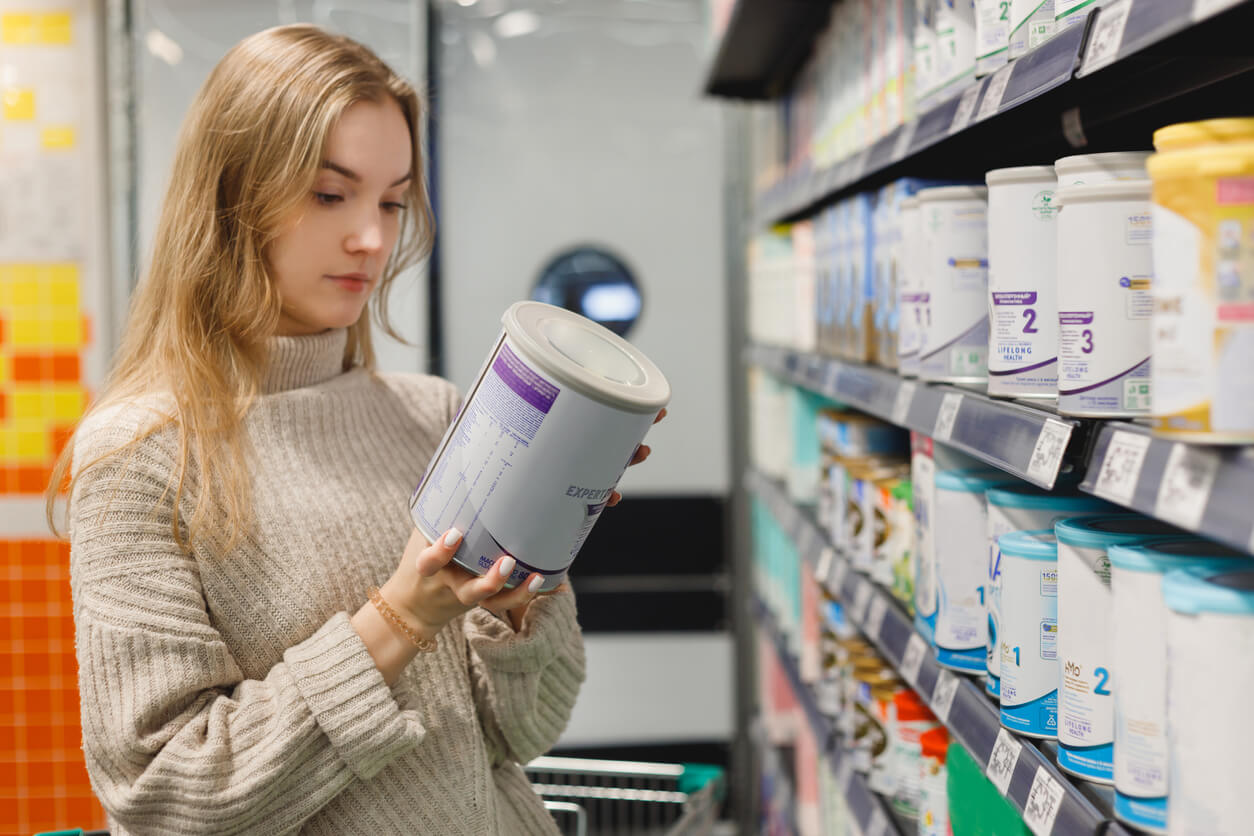
At least 21 countries are impacted by the recent Nutramigen Hypoallergenic Infant Formula recall over fears that the baby formula could be contaminated with a potentially deadly pathogen.
The U.S. Food & Drug Administration announced that Reckitt/Mead Johnson Nutrition has warned 20 countries, outside of the U.S., where the baby formula was distributed, about the potential issue with the product.
“Reckitt/Mead Johnson Nutrition has indicated to FDA that the company has already contacted the regulatory authorities in each of the countries to determine the proper disposition of these products,” the FDA said in a statement.
The formula from the same batch that tested positive for Cronobacter sakazakii bacterium was also distributed to Argentina, Belgium, Belize, Canada, Colombia, Costa Rica, Dominican Republic, Ecuador, El Salvador, Guatemala, Ireland, Israel, Jamaica, Mexico, Nicaragua, Peru, Poland, Spain, United Kingdom and Venezuela, according to the FDA.
Approximately 675,000 cans of the powdered infant formula, made to feed babies who have an allergy to cow’s milk, were recalled in the U.S. It’s unclear how many cans were distributed worldwide.
“No illnesses have been reported to date in connection with this recall, and it is likely most of the product that was distributed in the U.S. has already been consumed,” the FDA said in a Dec. 31 statement about the recall.
The same pathogen caused a massive baby formula recall in 2022 that led to a months-long shortage. It sparked many changes in the industry, including enhanced inspections, prevention strategies and regulatory action.
In 2022, some parents filed baby formula lawsuits against baby formula manufacturers, as their children suffered illnesses caused by salmonella, Cronobacter, or necrotizing enterocolitis. NEC can lead to severe intestinal conditions or death in infants.
Contamination Discovered by Israeli Officials
The issue came to light when an exported shipment of Nutramigen Hypoallergenic Infant Formula from Reckitt’s Zeeland, Mich. facility tested positive for Cronobacter during an Israeli Ministry of Health Inspection on Dec. 14. Later, whole genome sequencing confirmed Cronobacter sakazakii contamination.
The FDA launched an investigation into the manufacturing facility on Dec. 18. Testing of the same formula batch by the FDA and the company has shown negative results. The investigation is ongoing.
“All product in question went through extensive testing by MJN [Mead Johnson Nutrition] and tested negative for the bacteria,” the company said in its recall announcement on Dec. 30.
Pennsylvania Senator Bob Casey wrote a letter to the formula maker demanding answers about the recall.
“Parents of infants with allergies have enough on their plate without the extra burden of having to constantly check to see if their formula has been recalled, or worse, having to find another formula for their kids when a recall does happen,” he said in a statement. “I’m pushing for answers from Reckitt because we need accountability from formula makers that they’re doing everything in their power to make sure this never happens again.”
Recalled Baby Formula Batch Codes
People who purchased Nutramigen Hypoallergenic Infant Formula Powder should check the bottom of the can to determine if the affected batch number is listed. Cans with those specific batch codes should be disposed of and not consumed.
The products have a UPC Code of 300871239418 or 300871239456 and a “use by date” of Jan. 1, 2025:
- ZL3FHG (12.6 oz cans)
- ZL3FMH (12.6 oz cans)
- ZL3FPE (12.6 oz cans)
- ZL3FQD (12.6 oz cans)
- ZL3FRW (19.8 oz cans)
- ZL3FXJ (12.6 oz cans)
For a refund, consumers can reach out to Reckitt/Mead Johnson Nutrition at 866-534-9986 or via email at consumer.relations@rb.com.
What Is Cronobacter Sakazakii?
Cronobacter sakazakii can cause severe, life-threatening infections or even death. The pathogen is found naturally in the environment and is often found in dry foods like herbal teas, powdered milk and starches, according to the U.S. Centers for Disease Control and Prevention. Powdered baby food is not sterile.
The pathogen can be introduced to manufacturing facilities and homes via shoes or hands and can live on contaminated surfaces, according to the CDC.
“While infant formula firms are required to test a representative sample of their product for both Cronobacter and Salmonella species, this important verification step does not guarantee the product is free of Cronobacter,” the FDA wrote in the recall announcement. “Cronobacter contamination can occur at very low levels and is not evenly distributed throughout the product, making it difficult to detect.”
Infants who are infected with Cronobacter are at risk of developing sepsis or meningitis. Common symptoms can include fever and poor feeding, excessive crying or low energy. Babies with these symptoms should be seen by a doctor immediately.
“The health and safety of infants is our highest priority,” Reckitt/Mead Johnson wrote in a statement. “All of our products undergo rigorous and industry-leading quality tests and checks to ensure that they meet or exceed all standards set by regulatory bodies, including the World Health Organization and the U.S. Food and Drug Administration. It is for this reason that we have confidence in the safety and quality of every infant formula we make.”